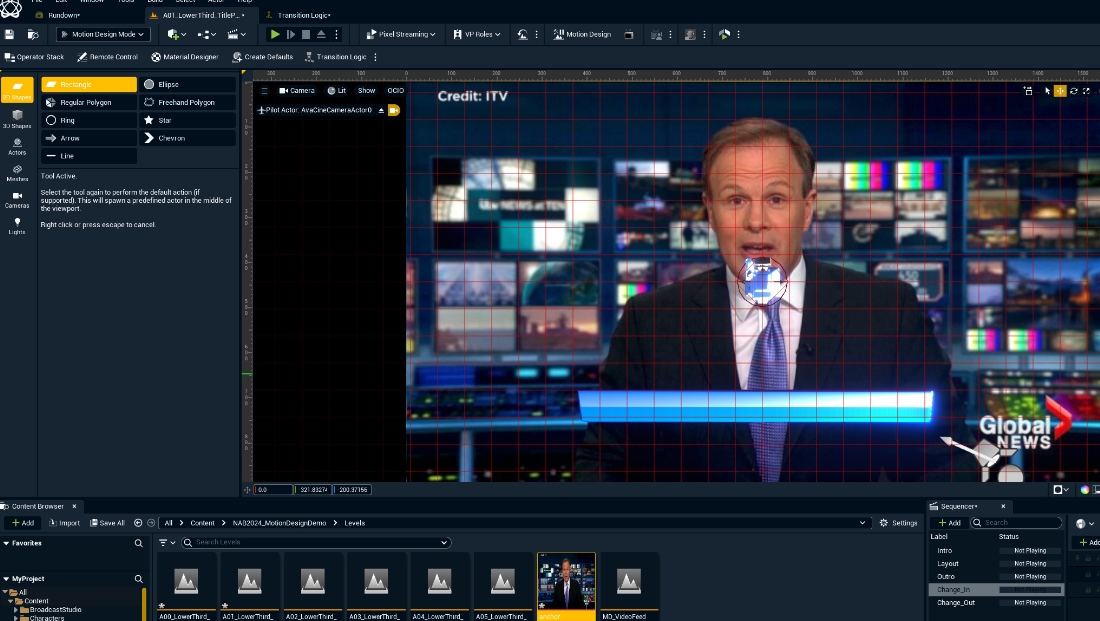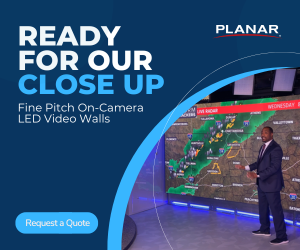Tech
Pixotope announces native support for Unreal Engine 5.4 in latest release

Pixotope, the leading software platform for end-to-end real-time virtual production solutions, today announced the availability of Pixotope 24.1.0. This release fully integrates Unreal Engine 5.4, opening up the ability to design motion and production graphics directly in Pixotope. With this integration Pixotope now offers a full broadcast graphics solution for simplified and streamlined augmented reality (AR), virtual studio, extended reality (XR) and character generator (CG) workflows with Unreal Motion Design. In addition, this release features an arsenal of innovative updates designed to empower broadcasters with the tools to enhance creativity and reduce complexity in virtual production workflows. The result is that it is easier and more efficient than ever for broadcasters of all sizes to push the boundaries of immersive storytelling to grow and retain their audience to drive new revenue opportunities.
“Broadcasters are constantly seeking ways to differentiate their programming. With Pixotope 24.1.0, we’re providing them with powerful tools to leverage Unreal graphics in their live broadcasts without complicating their workflows,” says Gideon Ferber, SVP of product at Pixotope. “For broadcasters, these creative capabilities translate into unique revenue opportunities. For example, they can integrate clever advertising seamlessly within programming, effectively monetizing 3-dimensional space that previously had little to no value.”
With the integration of Unreal Engine 5.4, Pixotope 24.1.0 delivers industry-leading motion design capabilities, allowing for complex 2D motion graphics directly within the engine. This enables broadcasters to take their on-air branding and visual storytelling to new heights, creating more engaging and immersive viewer experiences. With this integration, broadcasters can now easily produce highly detailed and photo realistic visual effects, enhancing both storytelling and visual appeal.
Complex broadcast graphics pipelines simplified
In addition to the enhanced creative capabilities of Unreal Engine 5.4, Pixotope’s broadcast graphics solution is easy for broadcasters to onboard. With Pixotope and Erizos Studio under one roof, users get simplified, streamlined, and familiar template-based workflows. This allows broadcasters to control multiple graphics engines and various aspects of their show simultaneously, integrating with newsroom control systems using the MOS protocol and supporting automation-driven playouts. These template-based workflows enable broadcasters to easily deliver compelling visual stories to viewers, seamlessly integrating real-time AR, XR, and virtual studio graphics into their live broadcasts.
Gideon adds, “Broadcasters today face the dual challenge of producing high-quality content while managing tight budgets and complex workflows. By automating complex tasks and reducing the need for extensive technical resources with ease of use updates, broadcasters can optimize their workflows to get engaging content out faster and more often.”
Pixotope 24.1.0 includes the following new features and capabilities that dramatically improve efficiency and reduce complexity:
Creative enhancements
- Hybrid XR Wall Capabilities that enable 2D Media Playback on LED walls, expanding the use cases to include both 2D and 3D graphics, offering a flexible solution to changing production needs.
- Chroma Screen Actor defines areas where the keyer will be active, ensuring smooth transitions between virtual and physical sets and improving the quality of hybrid studio productions by managing keying more effectively.
Other creative enhancements
- Character Rigging Enhancements
- Heterogeneous Volume Rendering
- Motion Matching for Animators
- Rendering Improvements
Streamlined set up and operation
- Automatic Delay Detection automatically calibrates delays between video and tracking, saving time and reducing errors by simplifying synchronization processes.
- Data Mapper allows users to bind external data to graphics without needing complex blueprints, reducing technical complexity and easing data integration into visual elements.
- Embedded Tracking data directly within the engine, eliminates the need for additional equipment (especially useful for remote productions), saving time and reducing the need for expert calibration.
- Simplified Color Pipeline simplifies the setup process for managing color spaces and profiles, ensuring consistent color quality and easy management of color settings.
- Template-Based Workflows simplify the creation process, enabling users to produce high-quality visuals more easily.
- XR/Video Wall Improvements offer new options for mapping media inputs and generating manual twins for XR walls, enhancing flexibility and control over XR setups.
Resilience and reliability
- Server Failover improves redundancy and safety for pipelines, ensuring productions continue smoothly even if a server fails.












